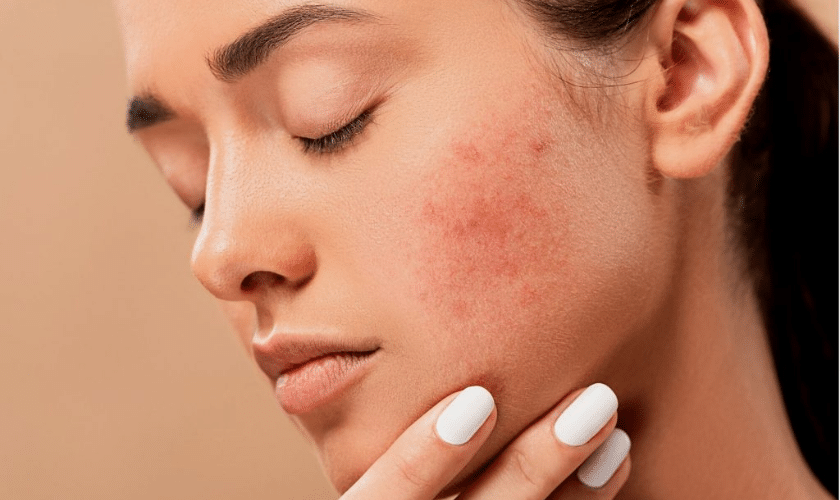Have you ever wondered about your skin’s health? We’re here to simplify the world of medical dermatology by answering the questions you may have. From understanding acne triggers to navigating the aging process, let’s explore the basics.
We’ll break down complex ideas into easy-to-understand insights, empowering you with the knowledge for your skin’s optimal well-being. Join us on this journey to discover simple solutions and actionable tips for your skin health.
What is Medical Dermatology?
Medical dermatology focuses on the diagnosis and treatment of various skin conditions, ranging from common issues like acne and eczema to more complex diseases such as skin cancer. It encompasses a wide spectrum of skin-related concerns that require medical expertise.
When to Consult a Medical Dermatologist?
It’s advisable to consult a medical dermatologist when faced with persistent skin issues, unusual moles or growths, chronic conditions like psoriasis, or concerns about skin cancer. Regular skin check-ups are essential for preventive care.
Common Questions and Answers
1. Is Acne Only a Teenage Problem?
Acne can affect individuals of all ages. While it’s commonly associated with adolescence due to hormonal changes, adult acne is prevalent. Medical dermatologists tailor treatments to address acne based on age, skin type, and specific triggers.
2. What Causes Skin Aging, and Can it be Reversed?
Skin aging results from factors like sun exposure, genetics, and lifestyle. While complete reversal may not be possible, medical dermatology offers various interventions, including topical treatments and minimally invasive procedures, to slow the aging process.
3. Are Skin Rashes Always Allergic Reactions?
No, skin rashes can stem from various causes, including allergies, infections, autoimmune conditions, or contact with irritants. Medical dermatologists employ diagnostic tools to identify the underlying cause and recommend appropriate treatments.
4. How Effective are Cosmetic Dermatology Procedures?
Cosmetic dermatology procedures, such as fillers, Botox, and laser treatments, can be highly effective in enhancing the skin’s appearance. Results vary based on individual factors, and a consultation with a medical dermatologist helps determine the most suitable options.
5. What Treatments Are Available for Skin Cancer?
- Surgery: The primary treatment for many types of skin cancer involves surgical removal of the cancerous tissue.
- Mohs Surgery: A specialized technique that removes thin layers of cancer-containing skin progressively until only cancer-free tissue remains.
- Radiation Therapy: Radiation therapy may be used to target and eliminate cancer cells in some circumstances.
- Topical Medications: For certain types of skin cancer, topical medications may be prescribed.
6. How Can I Maintain Healthy Skin?
- Adopt a Good Skincare Routine: Cleanse, moisturize and use sunscreen daily.
- Stay Hydrated: Proper hydration contributes to skin health.
- Eat a Well-Balanced Diet: Nutrient-dense foods promote skin health.
- Manage Stress: Chronic stress can impact skin conditions, so stress management is essential.
- Regular Check-ups: Schedule regular dermatological check-ups for skin cancer screenings and to address any emerging concerns.
7. Can Dermatologists Treat Hair Loss?
Yes, dermatologists can address various causes of hair loss, including:
- Androgenetic Alopecia: Commonly known as male or female pattern baldness, dermatologists may prescribe medications or recommend procedures to slow hair loss and promote regrowth.
- Alopecia Areata: An autoimmune condition that can result in hair loss, dermatologists may use topical or injectable medications to stimulate hair growth.
Navigating Dermatological Treatments
Topical Treatments:
Medical dermatologists often prescribe topical treatments for conditions like acne, eczema, or psoriasis. These may include creams, ointments, or medicated lotions tailored to the specific needs of the patient.
Minimally Invasive Procedures:
Dermatological procedures, such as chemical peels, microdermabrasion, or laser therapy, are minimally invasive options for addressing skin concerns. Trained professionals perform these treatments to achieve optimal results.
Surgical Interventions:
In cases of skin cancer or certain dermatological conditions, surgical interventions may be necessary. Medical dermatologists are skilled in performing procedures like excisions or Mohs surgery to treat skin issues effectively.
The Role of Preventive Dermatology
Skin Cancer Prevention:
Regular skin check-ups and screenings play a crucial role in preventing and detecting skin cancer early. Medical dermatologists guide sun protection, self-examinations, and risk factors for skin cancer.
Preventive Skincare Routine:
A preventive skincare routine recommended by a medical dermatologist can help maintain skin health, prevent common issues, and address specific concerns based on individual skin types and conditions.
Understanding medical dermatology involves unraveling the answers to common questions that individuals often have about their skin. Whether dealing with specific skin conditions, seeking cosmetic enhancements, or prioritizing preventive care, consulting a medical dermatologist is essential. With expert guidance and tailored treatments, you can initiate a journey towards empowered and healthy skin. Remember, your skin’s well-being is a reflection of your overall health, and investing in dermatological care is an investment in your overall well-being.

